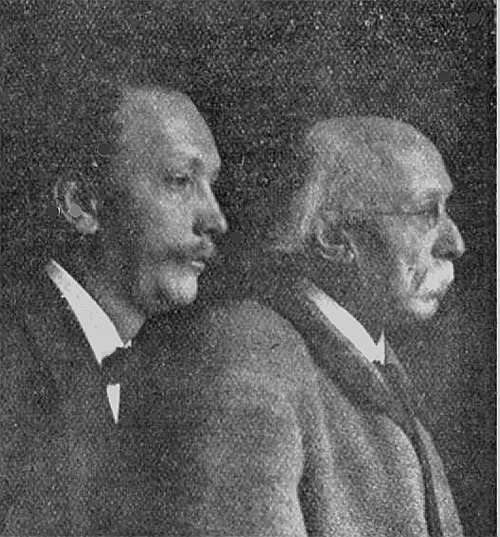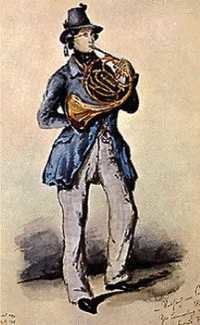It's all about the classical music composers and their works from the last 400 years and much more about music. Hier erfahren Sie alles über die klassischen Komponisten und ihre Meisterwerke der letzten vierhundert Jahre und vieles mehr über Klassische Musik.
Tuesday, November 14, 2023
Mary Hopkin - Those Were The Days - 1968
After Beatles, AI to bring Edith Piaf voice back to life for biopic
AT A GLANCE
"Edith" is "in the final phase of development", sources close to Warner Music France said, but no release date has been scheduled.

PARIS (AFP) - A new biopic on the life of Edith Piaf will use artificial intelligence to allow the French star to narrate her own story, Warner Music and her estate said on Tuesday.
"Edith" is "in the final phase of development", sources close to Warner Music France said, but no release date has been scheduled.
The unveiling of the "innovative and revolutionary technological project using AI to re-create her voice and image", the statement said, comes 60 years after Piaf's death.
It also follows the success of the Beatles' latest release "Now And Then" which, with a little help from AI, last week soared to the band's first UK number one single in 54 years
Artificial intelligence helped isolate the late John Lennon's vocals from a tape he recorded in 1978, two years before he was murdered.
The two surviving Beatles, Paul McCartney, aged 81, and Ringo Starr, 83, finished "Now And Then" last year, including the late George Harrison's guitar parts recorded in 1995.
For the singer of French classics "La vie en Rose" and "Non, je ne regrette rien", AI will be fed hundreds of voice and image clips, some more than 80 years old, to re-create her unique style and "further enhance the authenticity and emotional impact of her story".
Original recordings will be used for her greatest hits, Warner said.
The 90-minute film will move between Paris and New York from 1920 to 1960 and be narrated by the singer's voice, including hitherto unknown "aspects of her life".
Monday, November 13, 2023
Bizet: The Tragic Life Story Of The Opera Composer
Fil-Am Kaylee Shimizu aces ‘The Voice’ Knockouts with Aretha Franklin classic
The talented teen competed with two fellow hopefuls from Team Legend
By: Jelou Galang - @inquirerdotnetInquirer Manila
Only the brave souls dare to cover an Aretha Franklin song, especially with public scrutiny involved. Kaylee Shimizu is one of them—and it looks nothing short of a good decision.
After winning the previous Battles stage, the Filipino-American singer from Ewa Beach, Hawaii aced the Knockouts round of “The Voice” on Nov. 6, performing 1968 track “Ain’t No Way” by the “Queen of Soul.”
The 17-year-old offered a stellar performance of the challenging classic, which left Gwen Stefani and Reba McEntire speechless and Niall Horan giggly during her turn on the stage. Meanwhile, her coach John Legend stood still and raised his arms in astonishment as she finished the song.
Shimizu went against her fellow contestants from Team Legend Caleb Sasser and Mara Justine, who’ve also joined the four-chair turner club like her during the blind audition. In the end, Shimizu reigned the round, letting her take another step in the competition’s 24th season. Meanwhile, Sasser went home and Justine received steals from Stefani and Horan.
On Instagram, Shimizu posted a Knockouts photo dump with a caption bursting with gratitude, from her parents to her glam team. “Thank you to EVERYONE for your kind words and continuous support, I appreciate you all so much. Thank you John for helping me feel more confident in my voice and coaching me through these past performances, you’re amazing,” she said.
In another recent Instagram post, the contestant also posted a sentimental Reel, which takes a quick look at her progress as an artist. “Little me would have neverrr thought,” she wrote.
the most terrorizing piece ever written
Saturday, November 11, 2023
Nolwenn Leroy, Moonlight Shadow, France 2 [HD 1080p]
Harry Belafonte & Nana Mouskouri,Try to remember
 .... My respect to Mr.Harry Belafonte and Madame Nana Mouskouri!
.... My respect to Mr.Harry Belafonte and Madame Nana Mouskouri! 



Charles Gounod : Faust - Ballet Music
Friday, November 10, 2023
Bebo Best & The Super Lounge Orchestra - Sing Sing Sing (Dance Video) | ...
Camila Cabello - Havana | Gustavo Vargas Choreography
Famous Father, Famous Son! Franz and Richard Strauss
By Georg Predota , Interlude
Famous musical sons frequently have famous musical fathers. And Richard Strauss is no exception. In his day, his father Franz was recognized as an important artistic personality. Foremost, he became a celebrated horn virtuoso, by “breathing soul into the unthankful instrument.” Even Richard Wagner, against whom the musically conservative Strauss took literally every opportunity to make his disapproval clear, recognized his unusual talent. “Old Strauss is an unbearable fellow, but when he plays the horn one can’t really mind him.” Franz Strauss became a member of the Royal Court Orchestra in Munich in 1847, and set new standards on his instruments for more than four decades. However, he also dabbled in composition, predictably centered on his favorite instrument.

Franz and Richard Strauss © Wikipedia
Franz Strauss quickly recognized his son’s musical talent and entrusted four and a half-year-old Richard to August Tombo for piano lesson. Before long Richard was able to play the tunes in a book of operatic arrangements, and successfully tackled a Mozart sonata. His older sister remembered, “Richard made swift progress. Sight-reading presented him with no problems. His teacher played with him a great deal, and there was one trick that delighted Richard. His teacher played the bass part with the left hand, the top line with his right hand and the middle part with the tip of his long pointed nose.” Richard first tried his hands at composition at the age of six, when he composed the Schneider-Polka (Tailor Polka) for piano. However, as he was not yet capable of writing music, his father wrote it down for him.
Young Richard was described by his teacher as “a student with excellent dispositions, good deportment and well behaved; lively, enthusiastic, attentive, sometime over-eager and hasty.” By the time he was 18, Richard had composed roughly 140 compositions, including almost 60 songs and more than 40 piano works. Much of these juvenilia pay homage to the musical creed of his father, who favored the “trinity of Mozart (most of all), Haydn and Beethoven.” The first time Richard heard a Beethoven symphony he did not understand it, he remained unmoved and even said, “he didn’t care of it.” Nor did he understand Beethoven’s sonatas and quartets at that stage. “In his piano lessons he preferred Chopin, Mendelssohn and Bach.” When Richard made his pianistic debut on 20 October 1885, however, he played the Mozart C-minor Concerto with his own cadenzas, which are unfortunately lost. Echoes of Mozart and the Classical style clearly emerge in his Serenade in E-flat for Thirteen Wind Instruments, Opus 7, dedicated to his composition teacher Franz Meyer.

Franz Strauss ©hornarama.com
At age 21, Richard Strauss took up the post of assistant conductor of the Meiningen Orchestra. Hans von Bülow, a student of Franz Liszt and champion of the music of Richard Wagner and later Johannes Brahms had appointed him. To thank von Bülow, Richard composed a work for piano and orchestra originally titled “Scherzo in D minor.” Bülow considered it a “complicated piece of nonsense and unplayable” and refused to learn it. Strauss made some changes and renamed the work “Burleske” with Eugen d’Albert premiering the work in 1890. Bülow, however, was still not convinced and wrote to Johannes Brahms “Strauss’s Burleske decidedly has some genius in it, but in other respects it is horrifying.”
Throughout his life, Richard Strauss had the highest admiration for Hans von Bülow. “For anyone who ever heard him play Beethoven or conduct Wagner, who attended one of his piano lessons or observed him in orchestra rehearsal, he inevitably became the model of all the shining virtues of a performing artist, and his touching sympathy for me, his influence on the development of my artistic abilities, were the decisive factors in my career.”

@rinihariani1043